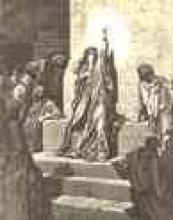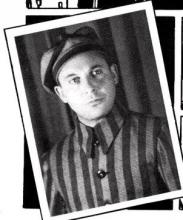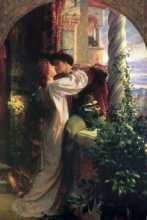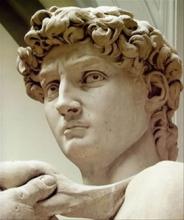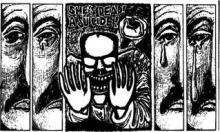A Brief Look at Women's Roles in the Bible and What it Means for Women Today- Part II
In part one of this article we looked at several examples of women in the Bible to see that women were often given positions of authority and considered prophets just as their male counterparts were. Of course, many in the church today will argue that that was merely the “Old Testament” and that everything changed in the “New Testament” which many know that this is not exactly the case; however, let us examine the argument all the same.
So, do we see female prophets even in the “New Testament”? Indeed, we do many times such as Anna; she is clearly called a prophetess just as her predecessors were (Luke 2:36). But, some will argue, that while women may have been present, they are only allowed to teach or prophesy, etc. to other women and not to men. But this seems problematic given the following passage:
Act 18:24 And a certain Jew named Apollos, born at Alexandria, an eloquent man, and mighty in the scriptures, came to Ephesus.
Act 18:25 This man was instructed in the way of the Lord; and being fervent in the spirit, he spake and taught diligently the things of the Lord, knowing only the baptism of John.
Act 18:26 And he began to speak boldly in the synagogue: whom when Aquila and Priscilla had heard, they took him unto them, and expounded unto him the way of God more perfectly.
Here we see that Priscilla was active in teaching and correcting Apollos; therefore this argument does not seem to hold accurate. They often also want to argue that she was only part of her husband's ministry and did so because she was under his supervision, yet we see clearly in Acts 21:9 that Philip's four daughters all served in the role of the prophetess, each being unmarried so again, this argument does not hold up.
Even without all of these examples of women in the Bible, we are given another passage that makes it clear that women were not only active in religious life of the past, but were intended to be so in the future as well: 1Co 11:5 “But every woman that prayeth or prophesieth with her head uncovered dishonoureth her head: for that is even all one as if she were shaven.”
How is it possible for a woman to be instructed to cover her head when she prophesies if she is forbidden from being a prophet? That simply would make no sense. In both the book of Joel and Acts we are told that the sons AND the daughters will prophesy (Joel 2:28; Acts 2:17). In fact, the only position in which women were specifically forbidden from holding was that of the Priest (and likewise as head of the household for they are considered the priests of the home). Again there are varied reasons for this; however, this one prohibition does not bleed over into any other part of religious life so it would seem odd that many often tend to actively seek to keep women out of religious roles and to seclude them from ministries and being active in their faith when even the Bible itself never did so.
Considering all of this I think it is clear that women do have a very important role in religious life and that we are each called to our own gifts and that we can all be used as teachers, prophets, etc. regardless of our gender and perhaps we should take more time learning about the many examples of strong, intelligent women who commanded armies and prophesied through out the lands....would these women not serve as much better role models than the helpless snow white fairy tale, walking blow up doll beauty queen types that are pushed on girls and young women today?
